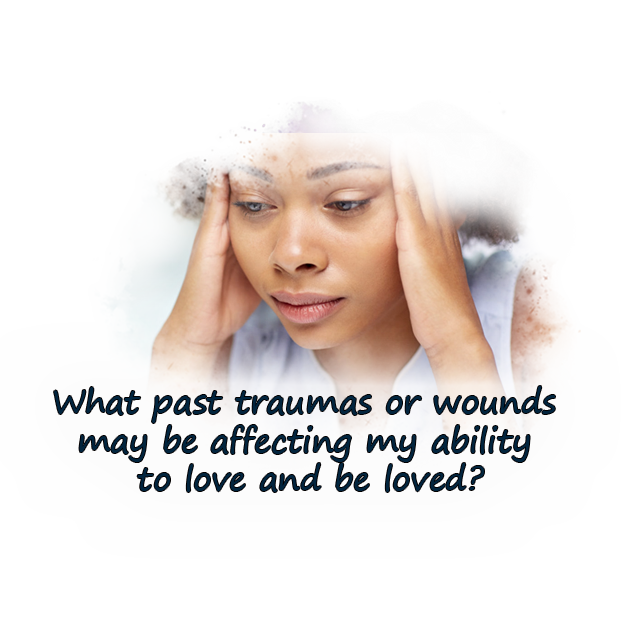
It is impossible to emphasize the influence that one’s history of hurt and trauma has on their capacity to love and be loved. An individual’s capacity to create good connections and their mental well-being as adults can be significantly influenced by the events that occurred during their childhood.
Childhood traumas such as neglect, abuse, and difficulties forming or maintaining attachments are just examples of the kinds of experiences that can leave profound emotional scars. These experiences can lead to feelings of dread, insecurity, and trust concerns, all of which can make it challenging to develop relationships that are both healthy and meaningful.
It is essential to be able to identify the symptoms of trauma and understand how they could appear in your life. This may be evidenced by actions such as avoiding situations, having emotional outbursts, or having trouble trusting other people. These behaviors might be an indication that there is a hidden traumatic experience that needs to be dealt with.
Seeking therapy from a therapist or counselor can be a useful way to confront previous traumas and work through any emotional obstacles that may be affecting a person’s capacity to love and be loved by others. You are able to examine your thoughts and work through any previous traumatic experiences in a setting that is safe and helpful thanks to the services of a qualified therapist or counselor.
During the course of therapy, a therapist may employ a variety of approaches, such as cognitive behavioral therapy, therapy with a focus on traumatic events, or mindfulness-based therapy. Your ability to develop healthy relationships may be hindered by negative thought patterns that can be changed with the help of cognitive behavioral therapy .
The effects of prior traumatic experiences can be worked through with the support of trauma-focused treatment, while mindfulness-based therapy can help you better manage stress and anxiety, as well as enhance your general well-being.
In addition to going to therapy, it is absolutely necessary to engage in activities that promote self-care. Practicing good self-care means looking after your mental, emotional, and physical health in equal measure. It may consist of doing things like going for a run, meditating, or spending quality time with the people you care about.
The practice of self-compassion is something else that is absolutely necessary. Self-compassion entails showing yourself care and understanding at all times, but especially when confronted with challenging circumstances.
It is possible to cultivate a good self-image and boost your self-esteem via the practice of self-compassion, which will make it simpler for you to build relationships that are both healthy and enjoyable.
In conclusion, past traumas and wounds can have a significant impact on your ability to love and be loved. It is essential to recognize the signs of trauma and seek therapy or counseling to work through any emotional blocks that may be affecting your ability to form healthy relationships. Additionally, practicing self-care and self-compassion can help you develop a positive self-image and improve your self-esteem, making it easier to form healthy and fulfilling relationships.
